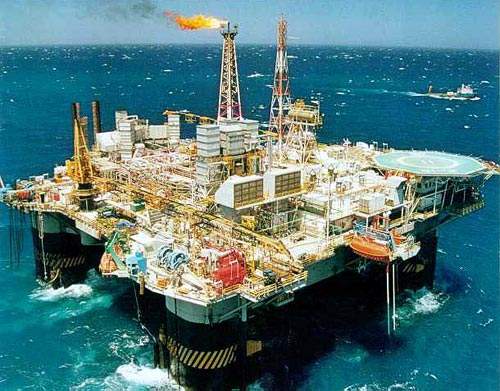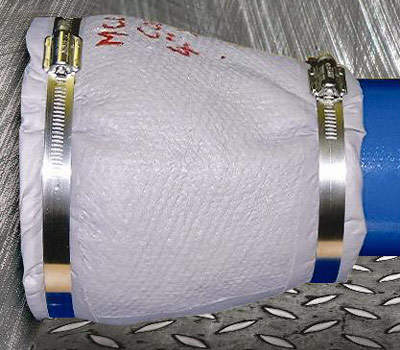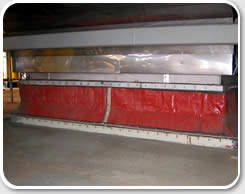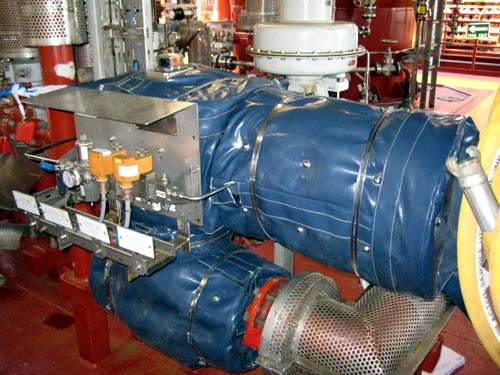
MCL Unitex is a specialist worldwide manufacturer of flexible passive fire protection (PFP) systems, and has over 25 years’ experience in the design, testing, construction and installation of fire seal systems and fireproof enclosures for the oil, gas, petrochemical and refining industries.
The company’s experienced engineering staff may also be called upon to design bespoke solutions and to further manage testing and certification procedures.
MCL is a member of the ISL Technology Group.
Blast-tested passive fire protection (PFP) pipe seals for offshore applications
MCL’s Firetex pipe penetration seal is a versatile and quick-to-install wrap-around system with approvals from A0, H0, A60, H60, H120, J60 and J120, which is intended to suit any pipe-to-sleeve ratio from 15mm to 1,067mm diameter.
Our seals have been successfully tested to maintain their stability, integrity and insulation properties and are able to withstand blast overpressures of up to 1.35bar(g), while accommodating movement of +/-25mm in any plane as standard.
Tailored solutions can be constructed on request for applications where frequent excessive movement may be involved, such as our Bellows seal system featuring a convolution structure to facilitate axial movement.
Other bespoke devices such as MCL’s Offset seal are also available, which has been specifically designed to tolerate greater-than-average movement between the pipe and sleeve.
Lloyd’s certified skirt sealant products for hazardous worksites
Firetex skirt seals have proven to deliver heavy-duty, cost-effective protection in both module-to-module and module-to-deck scenarios.
Our skirt sealing products also provide protection from A0 through to H120 for large rectangular ductwork penetration seals, and have been extensively field-tested to ensure safeguarding from blast overpressures of up to 1.16bar(g).
Bespoke wrap-around PFP seal systems for offshore oil and gas rigs
Our Jettex range of seal products are enhancements of the Firetex range of products.
The seal systems maintain their hydrocarbon fire protection properties, but are strengthened further with a second element to protect against the additional mechanical forces of a jet fire hazard.
An additional third element is also added in our J120 sealant systems, in order to deliver the most comprehensive protection currently possible on the market.
In cases where our standard solutions might not meet your project’s specific technical requirements, MCL Unitex is able to design and develop seal products to meet your individual needs.
IMO-approved fireproof enclosures to protect critical equipment
MCL’s fireproof enclosure systems are based on a similar material technology to our sealant products, but with the addition of greater silica fibre blanket thicknesses. These enclosure systems are intended to protect critical equipment such as valve actuators in the event of hydrocarbon fire hazards and potential jet fires.
Normally manufactured as a close-fitting jacket, the enclosure is specifically designed to meet client specifications, which ultimately dictate the period of protection and the limiting cold face temperature of the protected item.
Considerable testing has been undertaken over many years and test data has been used as the basis of our predictive software program Calpro. This facility allows us to better analyse customer requirements and predict performance outcomes.
MCL Unitex seal and enclosure systems are independently tested by IMO-approved, third-party test houses.
Throughout testing MCL’s systems have maintained their integrity, stability and insulation properties, and accordingly carry certification issued by Lloyd’s Register of Shipping, Det Norske Veritas (DNV) and / or the American Bureau of Shipping (ABS).
The Firetex range of penetration seal systems has been subjected to independent blast over-pressure procedures, in addition to hydrocarbon furnace fire testing, and has proved its ability to maintain stability and integrity in blasts of up to 1.35bar(g).
Our systems have also been subjected to jet-fire testing and carry further approvals up to J120, following the establishment of an internationally approved test methodology.
ISO 9001-compliant fireproofing solutions for marine environments
At MCL Unitex we manufacture our seal and enclosure systems to strict quality control procedures, in accordance with the requirements of ISO 9001. Formal accreditation is held through BSI, which audits our operations annually.
Copies of our certificate and quality manual are available on request and any client audit is welcomed.
Firetex seals and enclosures are multi-component systems made from ceramic and silica high-temperature-resistant cloths, glass cloths, insulation felts and blankets, metal foils and high grade stainless steels.
Silicate fibre blanket products are also employed, which have a patented fibre formulation giving enhanced solubility characteristics in the human body.
These component parts have been proved to be totally innocuous under fire conditions. COSHH data sheets are available on request.
Consultancy and installation services for PFP seals and enclosures
As an industry leader in PFP sealant solutions, MCL is happy to offer a complete range of consultancy services throughout the initial enquiry and design stages.
Our qualified and fully trained personnel are also happy to provide onsite assistance and management during the manufacture, supply and installation of PFP pipe seals, module seal systems and enclosures, in order to ensure these procedures are carried out as efficiently as possible






